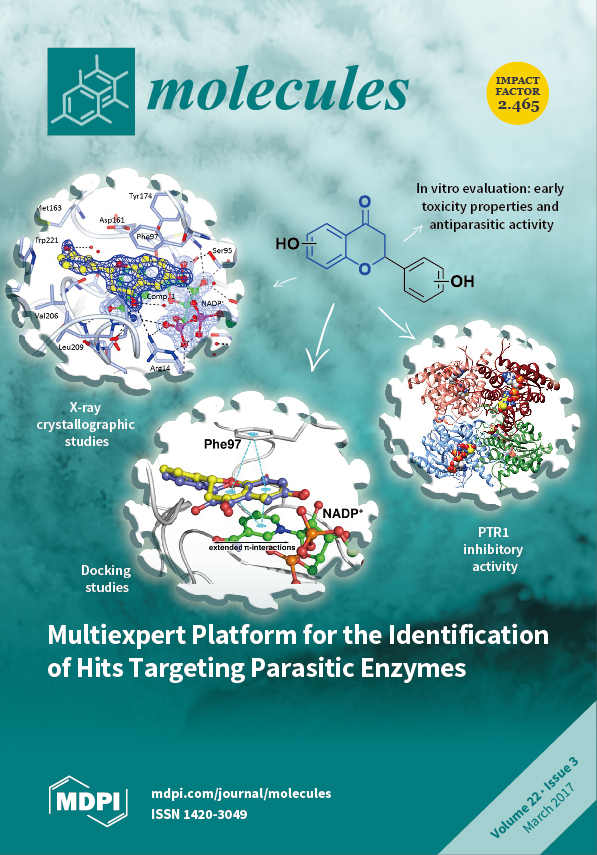On the front cover: Multiexpert Platform for the Identification of Hits Targeting Parasitic Enzymes

In the New Medicines for Trypanosomatidic Infections (NMTRypI) project funded by the EU and completed in January 2017, in which 13 partners participated, including the HITS Molecular and Cellular Modeling (MCM) and Scientific Databases and Visualization (SDBV) groups, novel anti-leishmanial and anti-trypanosomal hit compounds that inhibit pteridine reductase 1 (PTR1) were discovered. PTR1 is an enzyme of the Trypanosomatid folate/biopterin pathway unique to these parasites and can be inhibited by flavonoid compounds. In the present study, compounds with a flavanone scaffold were synthesized and characterized for their antiparasitic activity and ADME-tox properties.
Computational docking studies carried out by HITS researchers Ina Pöhner and Prof. Rebecca Wade (Molecular and Cellular Modeling (MCM) group), along with crystal structure determination, explain the observed differences in the inhibitory activity of the studied compounds against PTR1. Two crystal structures of one compound with different PTR1 enzymes provide a basis for further scaffold optimization to develop inhibitors targeting PTR1 enzymes from different parasites.
Flavio Di Pisa, Giacomo Landi, Lucia Dello Iacono, Cecilia Pozzi, Chiara Borsari, Stefania Ferrari, Matteo Santucci, Nuno Santarem, Anabela Cordeiro-da-Silva, Carolina B. Moraes, Laura M. Alcantara, Vanessa Fontana, Lucio H. Freitas-Junior, Sheraz Gul, Maria Kuzikov, Birte Behrens, Ina Pöhner, Rebecca C. Wade, Maria Paola Costi and Stefano Mangani. Chroman-4-One Derivatives Targeting Pteridine Reductase 1 and Showing Anti-Parasitic Activity. Molecules 2017, 22, 426. doi:10.3390/molecules22030426
Publication in Molecules Volume 22, Issue 3 (March 2017) with the front cover image.
About HITS
HITS, the Heidelberg Institute for Theoretical Studies, was established in 2010 by physicist and SAP co-founder Klaus Tschira (1940-2015) and the Klaus Tschira Foundation as a private, non-profit research institute. HITS conducts basic research in the natural, mathematical, and computer sciences. Major research directions include complex simulations across scales, making sense of data, and enabling science via computational research. Application areas range from molecular biology to astrophysics. An essential characteristic of the Institute is interdisciplinarity, implemented in numerous cross-group and cross-disciplinary projects. The base funding of HITS is provided by the Klaus Tschira Foundation.